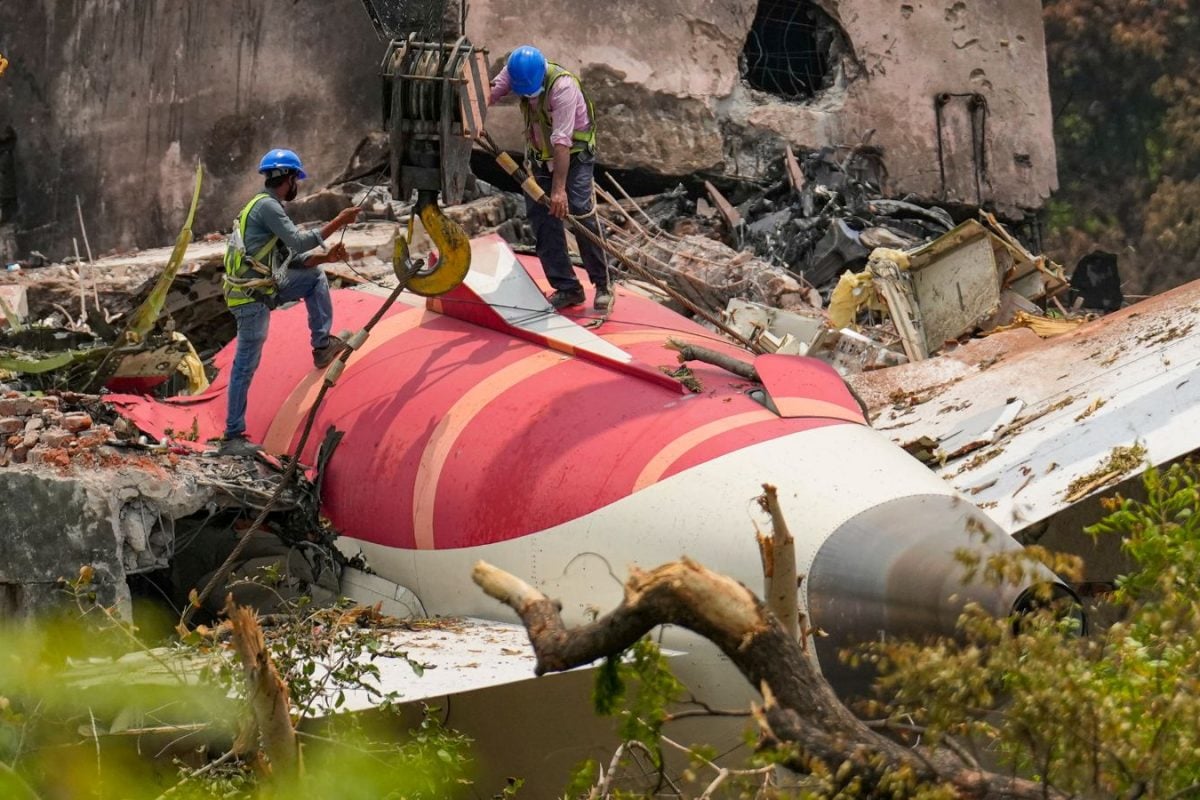

India has reportedly denied entry to a United Nations aviation investigator who offered to assist in the investigation of the recent Air India plane crash in Ahmedabad, according to sources familiar with the matter. The decision comes amidst some expert criticism regarding potential delays in the analysis of the crucial "black box" data.
The crash, involving an Air India Boeing 787-8 Dreamliner bound for London's Gatwick Airport, occurred on June 12, 2025, shortly after takeoff from Ahmedabad, resulting in the tragic loss of 260 lives. The aircraft slammed into a medical college hostel. Almost all passengers on board died, as well as at least 19 people on the ground.
Following the incident, the United Nations aviation agency, ICAO, took what has been described as an unusual step by offering India the assistance of one of its investigators. In prior instances, such as the downing of a Malaysian plane in 2014 and a Ukrainian jetliner in 2020, ICAO's involvement was at the request of the concerned nation. However, in this case, the offer was initiated by ICAO itself. ICAO requested that its investigator, who was already present in India, be granted observer status within the ongoing investigation. However, Indian authorities declined this offer.
The news was initially reported by the Indian news channel Times Now on Thursday. As of now, India's Aircraft Accident Investigation Bureau (AAIB), the agency spearheading the investigation, has not issued any formal statement or response to requests for comment. ICAO has also not released any comments.
India's civil aviation ministry stated on Thursday, June 26, that investigators had successfully downloaded flight recorder data approximately two weeks after the crash. Prior to this announcement, some safety experts had voiced concerns regarding the perceived lack of information and progress updates regarding the investigation. These concerns extended to the status of the combined black box unit, recovered on June 13, and a secondary set discovered on June 16.
Questions have also arisen concerning the location where the black box data would be analyzed, considering the participation of the U.S. National Transportation Safety Board (NTSB) in the investigation. The Indian government has held one press conference regarding the incident but did not take questions.
According to international aviation regulations, specifically "Annex 13," decisions regarding the location for flight recorder analysis should be made promptly to ensure timely access to critical evidence that could prevent future incidents.
The decision by India to deny access to the UN investigator has sparked debate. Some experts believe that international collaboration could bring additional expertise and resources to the investigation. Others maintain that India possesses the necessary capabilities and expertise to conduct a thorough and impartial investigation independently. The Indian government has stated that it is following all ICAO protocols. The AAIB team includes an aviation medicine specialist, an air traffic control officer, and representatives from the NTSB.
Meanwhile, the investigation continues, with authorities focusing on analyzing the data retrieved from the aircraft's black boxes. The successful data extraction is a crucial step toward understanding the sequence of events that led to the crash. The AAIB is working to reconstruct the accident timeline and identify contributing factors.